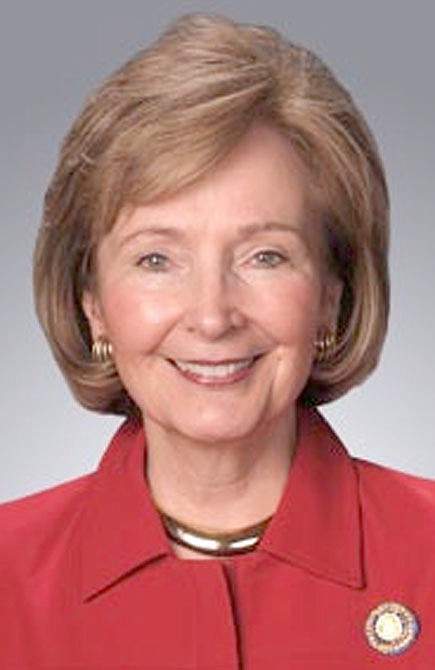Task force contemplates water system problems
Wednesday, September 6, 2017
LITTLE ROCK -- In Arkansas there are about 649 public water associations and 388 waste water systems.
Some of those water systems, especially the smaller ones in rural areas, are facing financial and technical challenges that will get more difficult in the next 10 years.
Legislators and representatives of water systems discussed those challenges at the first meeting of the Water Provider Legislative Task Force, which was created by Act 1056 of 2017. They also heard an update on the state's water plan from officials of the Arkansas Natural Resources Commission.
One of the costs of running a water system is paying a qualified water operator with the technical expertise required to keep the water clean and the equipment in repair. Task Force members estimated that currently, the average age of operators is from 55 to 65 years old.
When water systems have to replace operators in the next 10 years and thereafter, there will not be enough available people with the technical qualifications required, and many small water systems will not be able to pay the salaries needed to keep them on staff.
Small systems have to comply with the same regulations as larger, urban systems with thousands of customers.
A large proportion of the pipes now in use were originally installed in the 1960s. When they need to be replaced, the cost largely falls on ratepayers, although some grant money is available.
Members of the Task Force asked about the possibility of regionalization as a method of gaining efficiencies of volume.
Combining small systems into larger ones could have political consequences, especially in areas where residents place a priority on local control. If the state has to step in with financial help to subsidize the salaries of technical operators at smaller systems, local control could be diminished. Act 1056 lists some standards that the legislature intends to require of local water providers, such as their obligation to connect and fairly charge for water provided within their charter area.
Water systems in areas that are losing population face the problem of higher costs per customer. At some point they will have to determine how much people are willing to pay on their monthly water bills.
The Task Force will work on those and other issues and report to the legislature in time for the 2019 regular session.
Demand for clean water is going up, and overall Arkansas is not lacking in water resources. The challenge is getting water from where it is abundant to where it is most needed. The current demand for water in Arkansas is 11 billion gallons a day.
General obligation bonds are a source of financing for water systems. The Natural Resources Commission estimated that between now and 2024, water systems will need to replace $5.74 billion in equipment and waste water systems will need to replace $3.76 billion in infrastructure.
•••
Editor's note: Arkansas Senator Cecile Bledsoe represents the third district. From Rogers, Sen. Bledsoe is chair of the Public Health, Welfare and Labor Committee.
Editorial on 09/06/2017